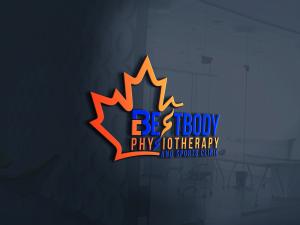Role of Social media in Patient Rehabilitation and treatment engagement
Social media’s Role in Patient Rehabilitation
SURREY, BRITISH COLUMBIA, CANADA, December 31, 2021 /EINPresswire.com/ -- “Social media would be an important tool to engage patients in their health care”, said Bestbody Physiotherapy and Sports clinic Director Shahnaz Gupta.Shahnaz Explained, the treatment for chronic conditions like neck pain and back pain is dominating health systems throughout the world. This scenario has created an opportunity for engaging patients in rehabilitation and health promotion via social media in future. In the coming decades, as the number of patients continues to grow and health care resources continue to strain, the need to engage patients in self-management of diseases becomes an essential strategy. Incorporating social media into how physical therapists are both designing and delivering care holds potential for enhancing patient engagement in prescribed health behaviors and improving treatment outcomes.
In North America, Appx 60-80% people with internet usage go online to get health information. The large proportion of people seeking health information online necessitates the involvement of health care professionals, such as physical therapists, in the online dialogue. As consumers, individuals have been attracted to, retained, and engaged in the commercial landscape using social media. It has been suggested that these individuals, in their roles as patients, are ready for social media to be implemented as a part of their health care delivery.
Social media sites like facebook, Instagram, youtube are routinely near the top of the list for most visited websites. The data support the intuitive understanding that social media are pervasive in modern North American culture. Yet, the challenge to the health sector is leveraging this popularity to influence health care delivery in a positive and significant way for patients and practitioners. It has been suggested that the use of social media in professional practice facilitates meaningful communication with patients, colleagues, and researchers, in part by providing clinicians with an online voice through which the profession may enhance its reputation and share credible health information.
The Canadian Medical Association has reported beginning the process of developing social media practice guidelines for physicians in Canada. Also, while the Canadian health landscape may be playing catch-up, American corporations in the health sector (eg, Kaiser Permanente, Mayo Clinic) have already developed social media policies to guide employee best practices. However, a challenge remains for implementing corporate social media policies in clinical practice.
The American Physical Therapy Association has published standards of conduct for the use of social media by members. Moreover, it has been suggested that virtual communication by a health care practitioner should mimic that in real clinic settings—for example, maintaining patient privacy, confidentiality, and best practices for professional conduct. It has been suggested that when social media platforms are used appropriately, with common sense and with professional integrity, they may offer many advantages to clinicians. Best practice guidelines may help direct health care practitioners in ethical and effective ways to engage in the online dialogue.
Similar to the introduction of other new information and communications technology systems, the readiness of clinicians to adopt social media practices in the process of delivering routine care may vary among health care professions. The Canadian Medical Association reported that among a survey of 600 association members (ie, physicians), 46% had downloaded an app to use in practice, 49% believe social media will improve their practice by increasing patients' sense of community, and 30% believe it will facilitate collaborative sharing of information. Moreover, a recent publication from the Canadian Physiotherapy Association highlights examples of clinicians who are actively engaged in social media to augment their existing practices. This information suggests that some health care practitioners are currently adopting various aspects of social media in clinical practice.
Social media are affordable, accessible, and user-friendly, allowing clinicians to utilize existing tools in practice to engage with social media, and existing platforms are generally free. Social media can be used by practitioners in following ways:-
1. As blogs to engage in dialogue with other practitioners and patients.
2. Content community platforms such as YouTube offer opportunities to share images and audio with the greater professional network.
3. Collaborative projects such as wikis (eg, physiopedia) hold much potential for physical therapy.
4. Social networking sites such as Twitter and Facebook offer the opportunity to collaborate with users in real time.
For practitioners, researchers, and regulating bodies, there are many opportunities to implement various aspects of social media in practice. It is an ever-evolving platform, and new opportunities will continue to present themselves. Not all patients are likely to support adoption of Web platforms in their care delivery. Lack of regulation may limit a health care professional's willingness to engage in the social media dialogue and may limit a user's ability or confidence in determining both the accuracy and applicability of information on Web platforms to his or her personal health. The perspective is not that social media should replace existing care models and treatment regimens but that these existing web platforms, which have been successful in other sectors, could be leveraged to augment care delivery and potentially improve treatment outcomes.
Shahnaz Gupta
Healthpress Digital Marketing Agency
+1 604-401-9000
email us here
Visit us on social media:
Facebook
Other
Legal Disclaimer:
EIN Presswire provides this news content "as is" without warranty of any kind. We do not accept any responsibility or liability for the accuracy, content, images, videos, licenses, completeness, legality, or reliability of the information contained in this article. If you have any complaints or copyright issues related to this article, kindly contact the author above.

